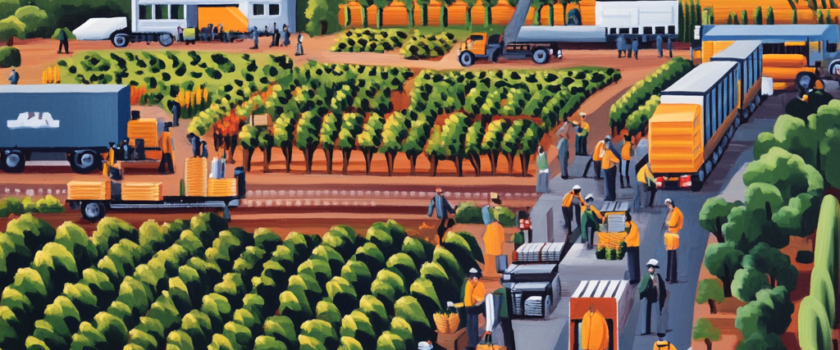
Labor migration: A solution for shortages in the food industry, transport, and agriculture
The Dutch labor market faces a persistent shortage of workers, particularly in sectors such as the food industry, transport, and agriculture. These industries depend on a steady flow of labor to meet demand. Labor migration is increasingly seen as a solution to this problem. In this article, we explore how labor migration can help alleviate shortages in these key sectors, based on a recent UWV report.
Labor shortages in the food industry, transport, and agriculture
The food industry is crucial to the Netherlands but faces a growing shortage of production workers and packaging specialists. Transport and logistics are also experiencing a shortage of drivers, while the agricultural sector has a chronic need for seasonal workers. According to the UWV report, labor migration can play a key role in easing the shortages in these industries.
Labor migrants in practice
Labor migrants are often employed in low-skilled roles, such as food processing or on farms. This allows businesses to continue operating even during periods of severe labor shortages. For companies in the transport and logistics sectors, employing labor migrants in warehouses and as drivers offers a flexible solution to the increasing demand for staff.
The importance of highly skilled personnel in transport and logistics
While many labor migrants perform low-skilled work, there is also demand for highly skilled workers. In the transport sector, for example, well-trained drivers are essential for efficiently moving goods across Europe. Companies focusing on logistics and transport can benefit from attracting well-qualified foreign drivers, offering a solution to ongoing shortages.
Innovation and automation: Long-term solutions
However, the report emphasizes that labor migration is not a complete solution to the structural shortages in these sectors. Companies in the food industry, transport, and agriculture must also invest in technology and automation to remain competitive and reduce their dependence on large numbers of labor migrants. Automation can help address labor shortages and increase productivity.
European opportunities
There are significant labor market differences within Europe. While countries like the Netherlands and Germany face shortages, others like Spain and Romania have labor surpluses. Businesses in sectors where Ebro Diensten is active can tap into this international labor pool to solve their staffing issues. By collaborating with partners across Europe, Dutch companies can address their shortages and ensure business continuity.
Conclusion: Labor migration as a temporary solution?
Labor migration provides a valuable short-term solution for businesses in sectors such as the food industry, transport, and agriculture. It allows them to continue operations despite significant labor shortages. However, in the long run, companies must continue to invest in innovation, staff training, and automation to reduce their dependence on labor migrants and increase productivity.

Share
Facebook
Twitter
LinkedIn
Telegram
Tumblr
WhatsApp
VK
Mail